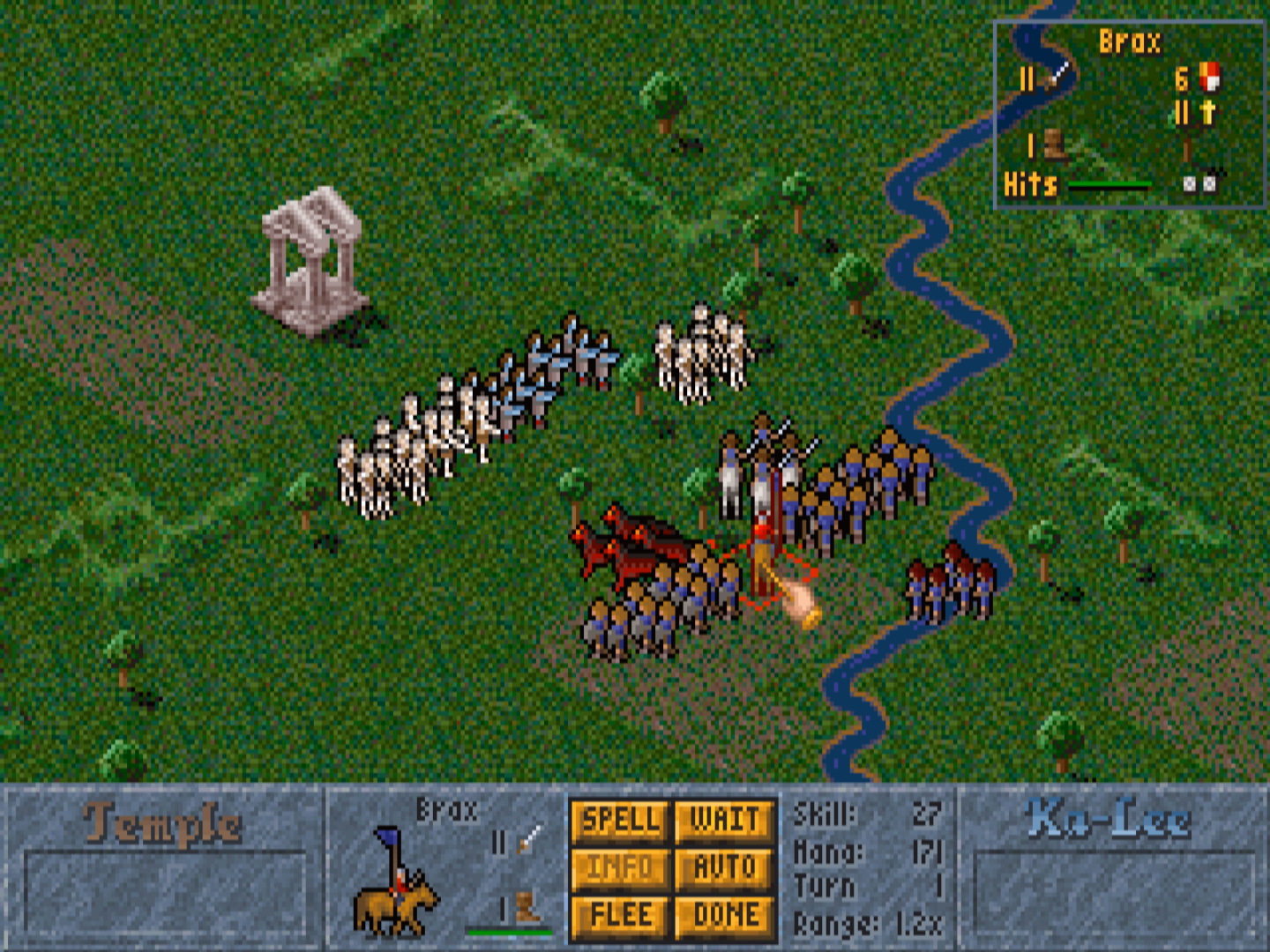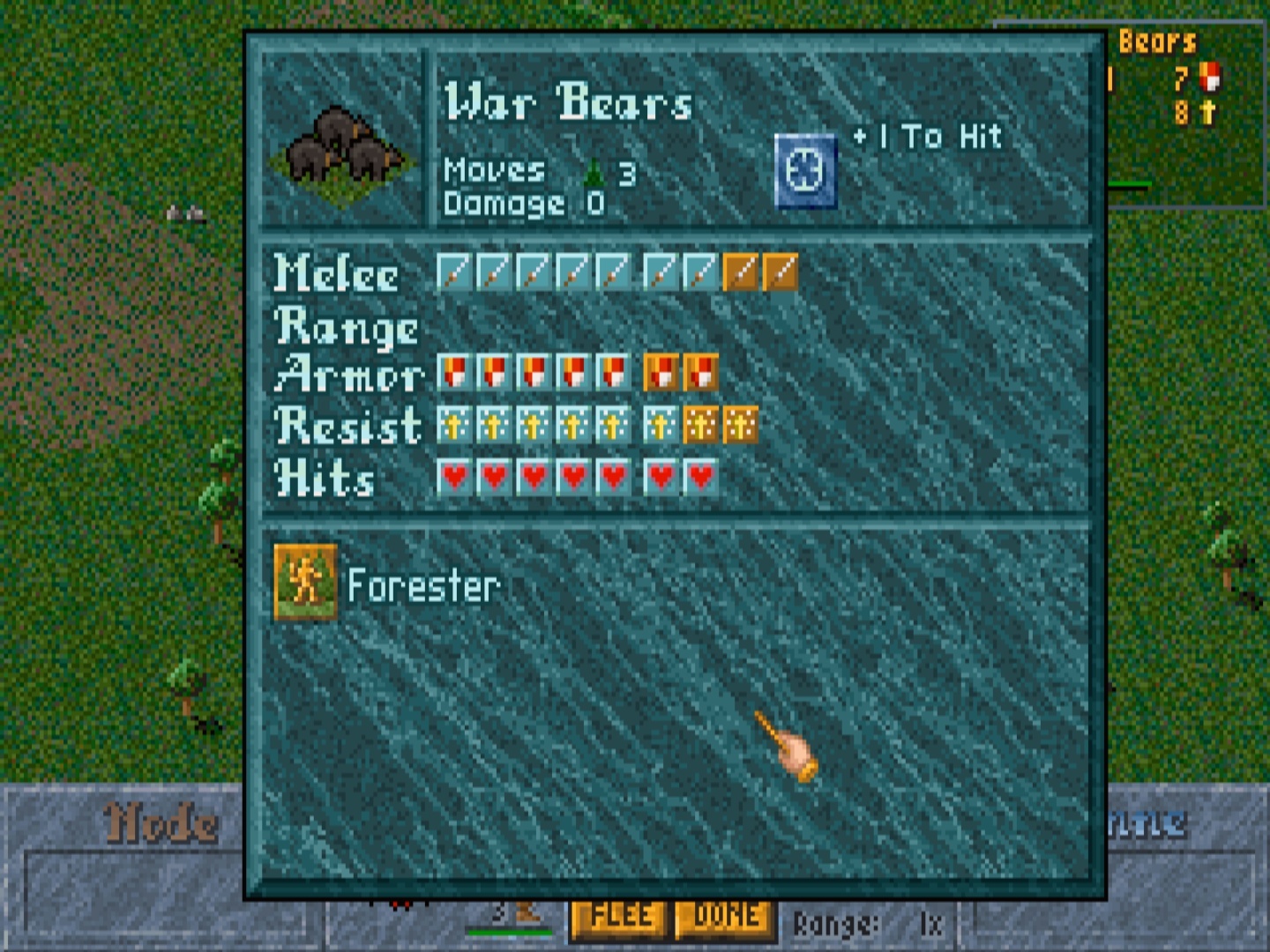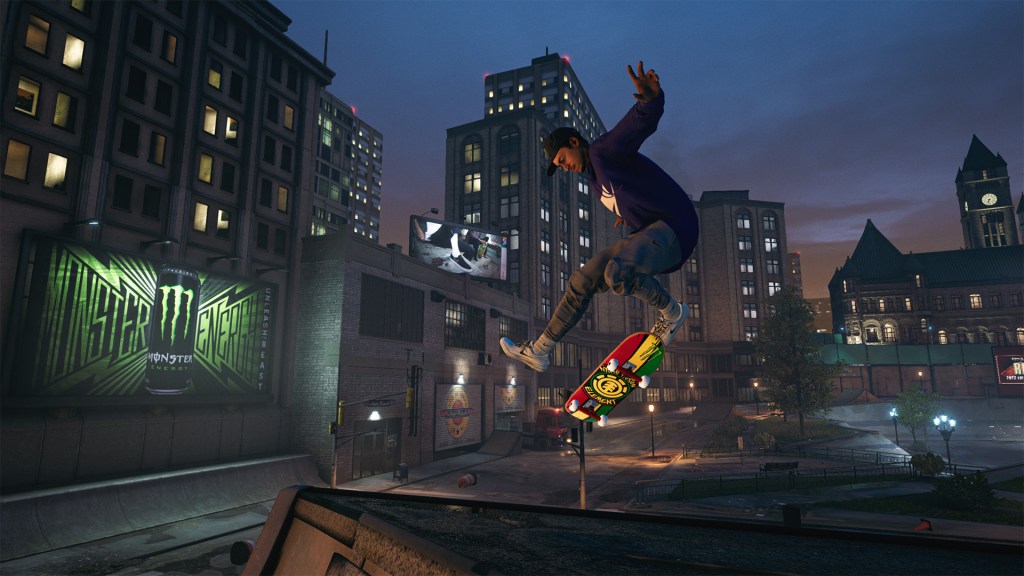Ask the right person and any older game is a classic. It could have the janky controls and strange concepts of Trespasser, the plain graphics of Desert Strike or the awkward interface of an early Final Fantasy but, if you could just look past that, you’d see the genius within.
Nostalgia makes even the most critical of us forgiving and we rarely fall out of love with the games of our youth, but I think if we’re honest, few hold our interest half as much as they used to. Video gaming barrels forward at a meteoric rate and it’s very, very rare that a game truly stands the test of time. While I’m not sure that even Master of Magic quite manages this, something about this fantasy 4X remains distinctly different. I have to side with a stubbornly consistent fan consensus that insists, even twenty-six years on, nothing else has quite been able to replace it.
Videos by VICE
And yet it’s no longer a historical anomaly, no longer some strange relic of the past. After securing the rights, strategy specialists Slitherine have catapulted it two and a half decades forward in time with a re-release and the adoption of the fan-made mod Caster of Magic as official DLC. Now, Master of Magic is a rather different kind of anomaly: surely the only video game to ever receive an expansion a quarter of a century later. And what an expansion it is.

But first, if you’ve never before encountered Master of Magic, it can be difficult to fully fathom what all the fuss is about. The most concise way of describing it would be “Civilization with wizards,” with similar city management and exploration, hundreds of spells replacing the tech tree, and armies of twisting gorgons and frothing hellhounds chewing each other to pieces across two different planes of existence. Originally created in 1994 by Simtex, the same team responsible for the better-known Master of Orion, it didn’t receive a strong reception upon release and became notorious for a host of bugs and dramatic imbalances. Many of these stemmed from how complex and customizable the game was, with its extraordinary array of spells and mythical beasts.
In spite of this, Master of Magic endured. After several patches, an improved (though still imbalanced) version of the game built a considerable cult following and continued to stand alone as a pure example of fantasy 4X, substantially removed from cousins like Age of Wonders and Heroes of Might and Magic. A spruced-up version of the game saw a Japan-only release for the Playstation in 1997, but a reported and much anticipated sequel never surfaced. Only relatively recently did it seed spiritual sequels such as Worlds of Magic, Endless Legend and Elemental: War of Magic but, aside from a few unofficial patches, it seemed to be an evolutionary dead end. An eternal curiosity. Then, in 2015, Caster of Magic began to change that.
“You could say the inspiration was the realization that if I want to play a good game, I have to make it for myself,” Caster of Magic’s creator Seravy tells me over email. Disappointed with the titles he was currently playing, he decided to dive back into Master of Magic, and his reasons quickly remind me of how remarkably rich the game remains, even to this day. “You had heroes, you had over two hundred spells, you could hunt for treasure, most units in the game had several special abilities… You had powerful spells that could wipe out entire armies or [that] affected the whole world.” And he’s certainly correct that the game’s sense of scale and of absurdly epic-level fantasy remains impressive to this day.

After having previously hacked his save files, Seravy began to dig deeper and deeper into the game, reevaluating those spells and monsters. One thing led to another and, before Caster of Magic was declared official DLC last month, Seravy’s last version update was a novelistic 168,000 words of cumulative tweaks, improvements and additions carefully crafted over five years.
That 168,000 words documents an extraordinarily ambitious project, reflecting a level of depth and dedication that’s been celebrated and enormously well-received by an equally invested fanbase, the sort of people who continue to play a game two and a half decades on. Caster of Magic addresses bugs and imbalances that have been discussed and debated countless times and adds a host of features, from interface improvements to new buildings to a radically revamped AI. Seravy describes it as an attempt to “Make the perfect Master of Magic game, whatever it takes” and, in doing so, I wonder if he’s even made the base game irrelevant.
While ironing out too many of the wild imbalances in the original game may (pardon the pun) spoil the magic, Seravy has tried to address those that he says most affect player enjoyment, while being very careful about adding anything. “Adding new spells or units is like playing Jenga,” he says, with the risk that everything might collapse, but he has included a handful of new buildings to fill gaps in the game’s economy. The Amplifying Tower balances the late game, while the early game Magic Market addresses wildly random starting conditions that can leave players with no sources of mana, a vital resource for most strategies. He feels the game’s spell system is now “as good as it gets, I see very little room left for improvement there, maybe [a few] more spells in the very rare tier,” and suggests that “adding more races might be an option, assuming the new race fills a different role than the existing ones. Of course, adding a new race isn’t really an option without source code.”

And there’s the kicker. All through Slitherine’s acquisition of Master of Magic, back through Seravy’s modding, even as far as early community mods, nobody’s had access to Master of Magic’s source code. Nobody knows where it is. Seravy has had to make do with an “a disassembler, an assembler, [and] a hex editor.”. The changes are remarkable and that improved AI means the game plays much smarter and has overcome classic idiocies, like never using boats, while the refined economy makes for fewer dead turns (endlessly clicking “Next Turn” was a typical Master of Magic experience). But, after five years of work, he may be reaching the limits of what is possible.
It may’ve been the perfect time to make Caster of Magic official. It’s certainly a move that has been very well received by the Master of Magic community, with no complaints that the mod now costs or that Seravy has sold out. Indeed, most fans are glad to see his diligence recognised and rewarded, and hope this means that Slitherine have plans for the franchise. For their part, the studio tell me they see “tons of different potential avenues” to explore and that officially adopting the game’s most impressive mod was a way to demonstrate their intentions, give credit to a skilled modder and lay the foundations for a strong relationship with players.
“We have a lot planned, but only little we can openly talk about right now,” said Marco Minoli, Slitherine’s Marketing Director. “The current goal is still to leverage the popularity of the original game and give it new life, while developing our plans for the future of the franchise.” He acknowledges that players hold “high expectations” for a Master of Magic sequel: “we have a big responsibility to deliver on that which we take very seriously.” It’s hard to imagine that a sequel hasn’t been on the cards since day one, but this is as close to a confirmation as we’re going to get for now.

If there is any downside to Caster of Magic’s adoption, it’s that the improvements it brings are so extensive that the base game now feels barren without them. There’s no doubt in my mind that it makes Master of Magic a far more coherent and challenging experience, so much so that it even requires a little re-learning. As Seravy warned me, “Don’t set the difficulty too high and be prepared for everything.”
Does this now mean that, after all this time, Master of Magic has at last achieved its final form? Is this the game it was always meant to be? In their correspondence to me, both Slitherine and Seravy acknowledge that the game’s frequent imbalances and sometimes wildly disproportionate encounters (where, even on easy levels, it’s possible to begin the game right next to dangerously powerful enemies) remain a key part of its character. It’s exciting precisely because it remains unpredictable and because it boasts many of the jagged, jarring edges that more modern games have tried to soften, even with Caster of Magic’s modifications.
But if Slitherine has made the original Master of Magic obsolete, nobody can complain that the game hasn’t had a good run. Twenty-six years is an inordinately long time for a buggy, eccentric, cantankerous video game to rule the most niche of roosts. To see a game this old born again, and celebrated again, is a once-in-a-generation video game experience.




